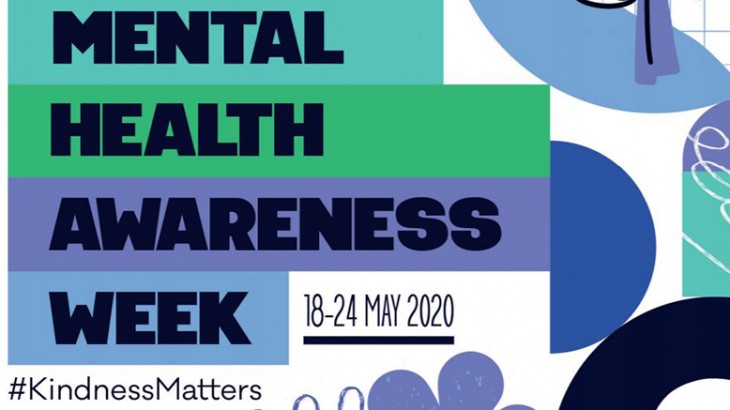#KindnessMatters

Hosted annually by the Mental Health Foundation, this week is Mental Health Awareness Week.
The theme for this year’s Mental Health Awareness Week is kindness. Click here to find out why kindness was chosen as a theme and to access resources to help you get involved this week.
We are living through difficult times and we want everyone who works for Royal Mail to feel that they can be open about their mental health and to ask for support if they need it. Throughout this week we will be sharing information, which can be used to help support you and your loved ones during the coronavirus pandemic and beyond.
Being a key worker and the stress and anxiety that can be associated with such a role.
Right now, more than ever, you may be feeling the pressure as a key worker. Whether you are the only person in the household working; putting in unfamiliar hours in new ways; or working from home, these are unprecedented times.
Sustained pressure, with all its associated additional stress and worry, can have a negative impact on both our mental and physical health – it is therefore crucial that we do all we can to look after ourselves, our loved ones and colleagues.
What is stress?
Stress is our body’s reaction to help us deal with pressure or threats. Some stress can be useful and keep us motivated to take action and complete tasks, too much, however, can have a negative effect on our mental health. Signs of stress can include a racing heart, headaches, muscle tension, trouble sleeping, feeling angry, frightened, snapping at people, eating more (or less), smoking and drinking alcohol.
Self-care - We may need to try different things until we find what works to help reduce stress and anxiety. We are all different.
Spending time with friends and family - Telling someone how we’re feeling can help to reduce stress. Connect with a simple phone call, or via WhatsApp, Skype and Facebook. If you, or someone you know, doesn’t like using social media, try sending a postcard, or writing a letter or email instead.
Exercise can help to relieve stress as well as helping to keep us healthy. People enjoy different things. Within Government guidelines, you could try cycling, walking, running, or following online classes. Doing housework or gardening is also a gentle way to exercise.
A good night’s sleep can help with concentration levels and improve your mood. Having a regular bedtime routine and sleeping in an environment that is not too hot or cold can help, as can regular exercise (not too close to bedtime) and not using the phone or computer immediately before you go to bed.
Eating a healthy balanced diet is good for mental and physical health. Stay hydrated. Information on health and lifestyle advice can be found on the Feeling First Class website at www.feelingfirstclass.co.uk (use code FFC1 to register). Click here for further NHS advice.
You are not alone - support is available
We understand that there is an increase in concern and anxiety. If you or a member of your team would like to speak to a counsellor, they can contact First Class Support available 24/7 to provide emotional (not medical) support on 0800 6888 777.
A selection of chapters from ‘Positive Mental Health,’ a book written by Dr Shaun Davis and Andrew Kinder, are available here to help you manage a range of mental health problems.
Click here to see the full range of mental health support available to you.
Please visit myroyalmail/coronavirus for all the latest covid-19-related information and guidance.



